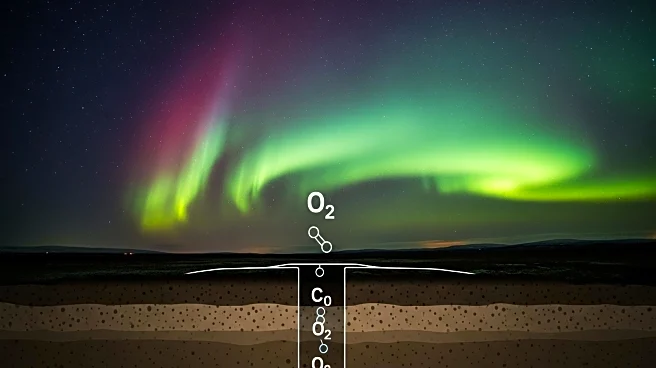What is the story about?
What's Happening?
The Northern Lights CCS project has successfully completed its first CO2 injection and storage milestone. CO2 volumes were transported from Heidelberg Materials' cement factory in Brevik, Norway, to Northern Lights' facilities in Øygarden, where they were injected 2,600 meters below the seabed. The project, a collaboration between TotalEnergies, Equinor, and Shell, is the world's first merchant CO2 transportation and storage initiative. The first phase has a storage capacity of 1.5 million tonnes of CO2 per year, fully booked by customers from Norway and Continental Europe. The second phase, set to increase capacity to over 5 million tonnes per year, is planned for completion by 2028.
Why It's Important?
The successful CO2 injection marks a significant advancement in carbon capture and storage technology, crucial for reducing industrial emissions in Europe. The Northern Lights project provides a scalable solution for CO2 management, supporting European industries in meeting emission reduction targets. This initiative could serve as a model for similar projects globally, promoting sustainable practices and helping mitigate climate change impacts. The project's expansion plans indicate growing demand for carbon storage solutions, potentially driving further investments in the sector.
What's Next?
The second phase of the Northern Lights project is expected to increase storage capacity significantly, with completion targeted for 2028. This expansion will involve additional infrastructure, including new storage tanks and injection wells. The project's success may encourage other regions to adopt similar carbon capture and storage technologies, fostering international collaboration in emission reduction efforts.
Beyond the Headlines
The Northern Lights project highlights the potential for carbon capture and storage to become a key component of global climate strategies. As the technology evolves, ethical considerations regarding environmental impacts and community involvement may arise. Additionally, the project's success could influence policy decisions and funding allocations for future carbon management initiatives.

















